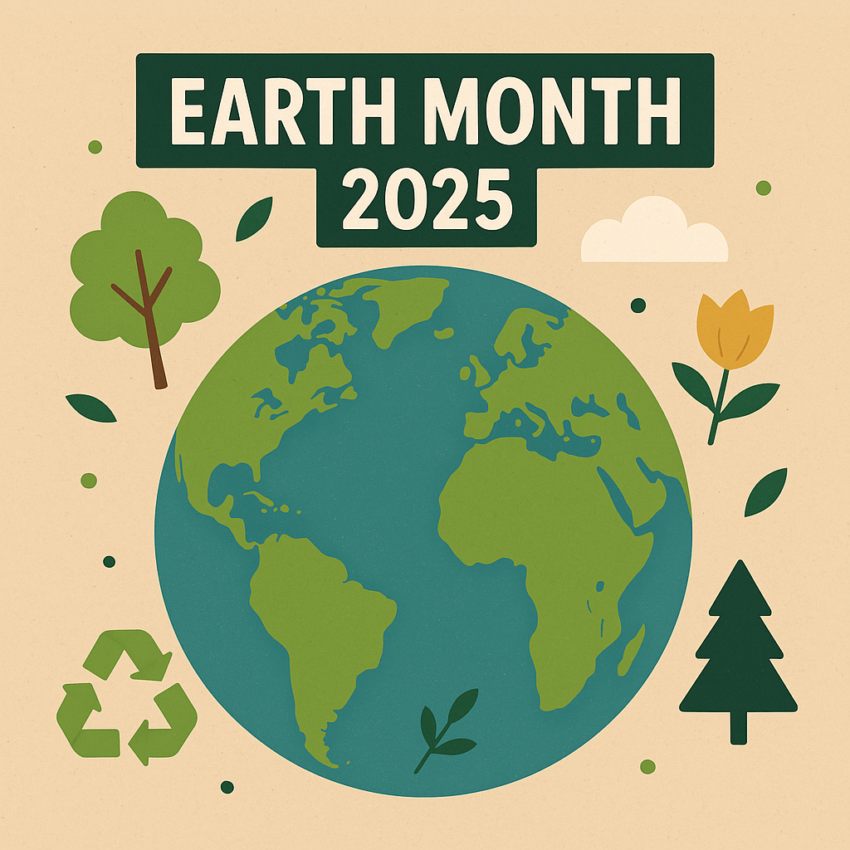Each April, Earth Month serves as a global reminder of the urgent need to care for the only home we’ve got. From its humble beginnings rooted in activism to today’s widespread climate movement, Earth Month 2025 comes at a time when environmental awareness is more critical than ever.
A Brief History of Earth Month
Earth Month traces its origins to the first Earth Day, celebrated on April 22, 1970. Sparked by the environmental disasters of the 1960s, including oil spills, air pollution, and industrial contamination, the movement was led by U.S. Senator Gaylord Nelson and organized by grassroots activists across the country. It marked the beginning of a new era of environmental legislation and public consciousness.
Over the years, the celebration expanded into a full month of global action. Today, Earth Month engages millions of people around the world in projects, campaigns, and discussions that champion sustainability, conservation, and climate action.
Why Earth Month Still Matters
The planet continues to face challenges that threaten our future: climate change, plastic pollution, deforestation, biodiversity loss, and water scarcity, to name just a few. Earth Month remains relevant because it encourages us to reflect, take responsibility, and act for a healthier planet.
It’s not just about environmentalists or policy makers—it’s about each of us. Every choice we make has an impact, and Earth Month reminds us that we are stewards of this world, not just passengers.
Raising Awareness: From the Classroom to the Boardroom
One of Earth Month’s greatest strengths is its ability to engage diverse audiences. Schools teach children about recycling and ecosystems. Communities organize clean-up drives and tree plantings. Businesses assess their carbon footprint and implement greener supply chains. Social media buzzes with campaigns that educate and inspire.
But awareness is only the beginning. Real change happens when we take awareness and turn it into action—when individuals, organizations, and governments commit to long-term sustainability.
Promoting Sustainable Practices
Sustainability isn’t a trend—it’s a necessity. Earth Month 2025 is a reminder to:
- Reduce single-use plastics and embrace reusables
- Choose clean energy options where possible
- Conserve water and energy in daily life
- Support local, eco-conscious brands
- Recycle and compost responsibly
- Advocate for climate-friendly policies
These practices, while simple, are powerful when adopted collectively. Sustainability needs to move from a checkbox to a way of life.
Why It Matters More and More
With each passing year, the effects of climate change become harder to ignore—rising sea levels, extreme weather, food insecurity, and mass extinction events. Earth Month serves as a wake-up call to confront the consequences of inaction and to renew our commitment to sustainable living.
The younger generation is particularly vocal and visionary in its demand for climate justice. Earth Month provides a platform to amplify these voices and create space for intergenerational dialogue and innovation.
Every Month Should Be Earth Month
Earth Month 2025 is more than a celebration—it’s a movement, a mindset, and a mission. While April gives us a chance to spotlight our planet, the commitment to protect it must extend throughout the year. Our choices today shape the legacy we leave behind. Let’s choose wisely.


